BENEFITS OF BIG PICTURE LEARNING
Big Picture helps prepare children for the modern world by focusing on one student at a time

STUDENT AT THE CENTRE
Rather than put the teacher at the centre, Big Picture puts the student at the centre. We begin by asking each child what she wants to learn – what is she curious about? What is she interested in? So school becomes about unleashing curiosity rather than force feeding knowledge to our children.

PERSONALISED LEARNING
With Big Picture, each child can learn at her own pace. If someone is excelling in certain areas, she can keep going far ahead toward mastery. If she’s lagging in other areas, she can spend more time and effort to catch up. Children can learn from various avenues like video lectures, learning games, peer learning, etc instead of being lectured all day.

MORE REWARDING AND EFFECTIVE
When you are learning what you want to learn, and exploring your own interests and passions the biggest benefit is that you will be happier and more engaged at school. Not only that, you would be much more motivated and energised by your learning. This is perhaps the biggest benefit of Big Picture.

PASSION & INTEREST BASED
Big Picture focuses on developing the talents and passions of each child. From a young age we help each child answer some of the biggest, most important questions in his life – what is he passionate about? what does he enjoy doing? how can he contribute to this world?

REAL WORLD LEARNING
Big Picture focuses on connecting each child’s learning to the real world at every step of the way. We begin by interest exploration exercises that expose children to a world of different professions, industries and occupations. At older ages, children engage in internships and mentorship programs from their field of interest.

AUTHENTIC LEARNING
No book can teach someone how to be a good doctor, lawyer or businessman. The only way to learn these things is to actually do it. Big Picture focuses on learning by doing – children do real things, build products, make presentations, collaborate; just like in real world occupations and professions.

21ST CENTURY SKILLS
Doing real work in the real world builds valuable 21st century skills like creativity, collaboration, communication, planning and time management in contrast to traditional schools that focus on industrial age skills like obedience and compliance.

AUTONOMY
Once each child has set personalised goals for herself based on her passions and interests, we would give her a lot of autonomy and freedom to figure out how to best achieve her goals. She has to manage her own time, schedule commitments and figure out a balance. She has to seek out resources and people who will help her achieve her goals. This helps makes students self-directed and autonomous.

GOAL SETTING
Research shows that to be successful in the real world, we need to be able to set goals, plan around how to achieve the goals and persevere to achieve them. This is exactly what happens in each learning cycle under the Big Picture framework. From a young age, children learn critical goal setting and planning skills.

CULTURE AND RELATIONSHIPS
Big Picture schools are places where students are pursuing their unique interests and passions and are developing diverse skills and talents. This is in contrast to traditional schools where your child is doing the exact same thing as everyone else and being constantly compared with others. At Big Picture schools, children are more than just a test score and are known by the school community for who they are, their unique talents, skills and interests.
To learn more about the Big Picture framework and how we can personalise your child’s education, sign up for a one-on-one session with a member from our team.







